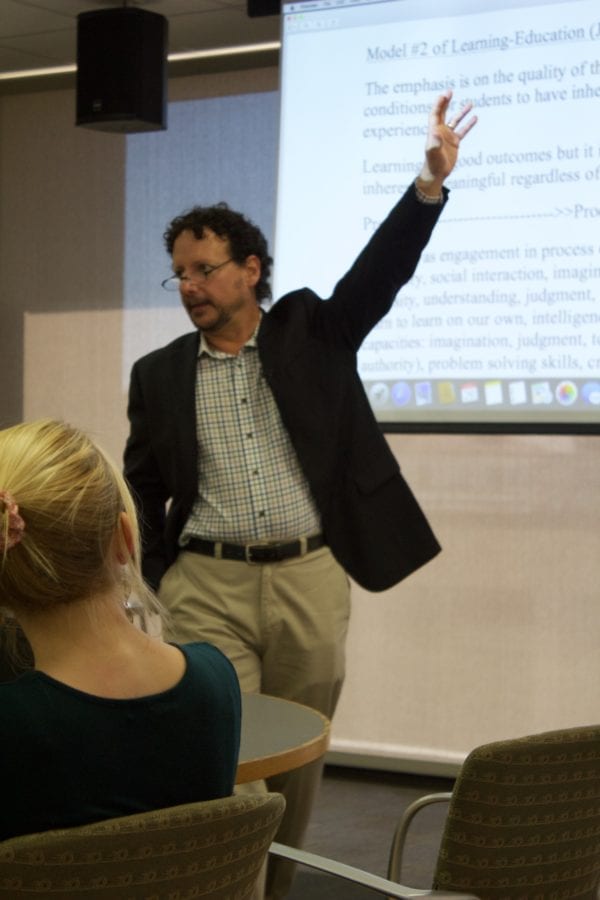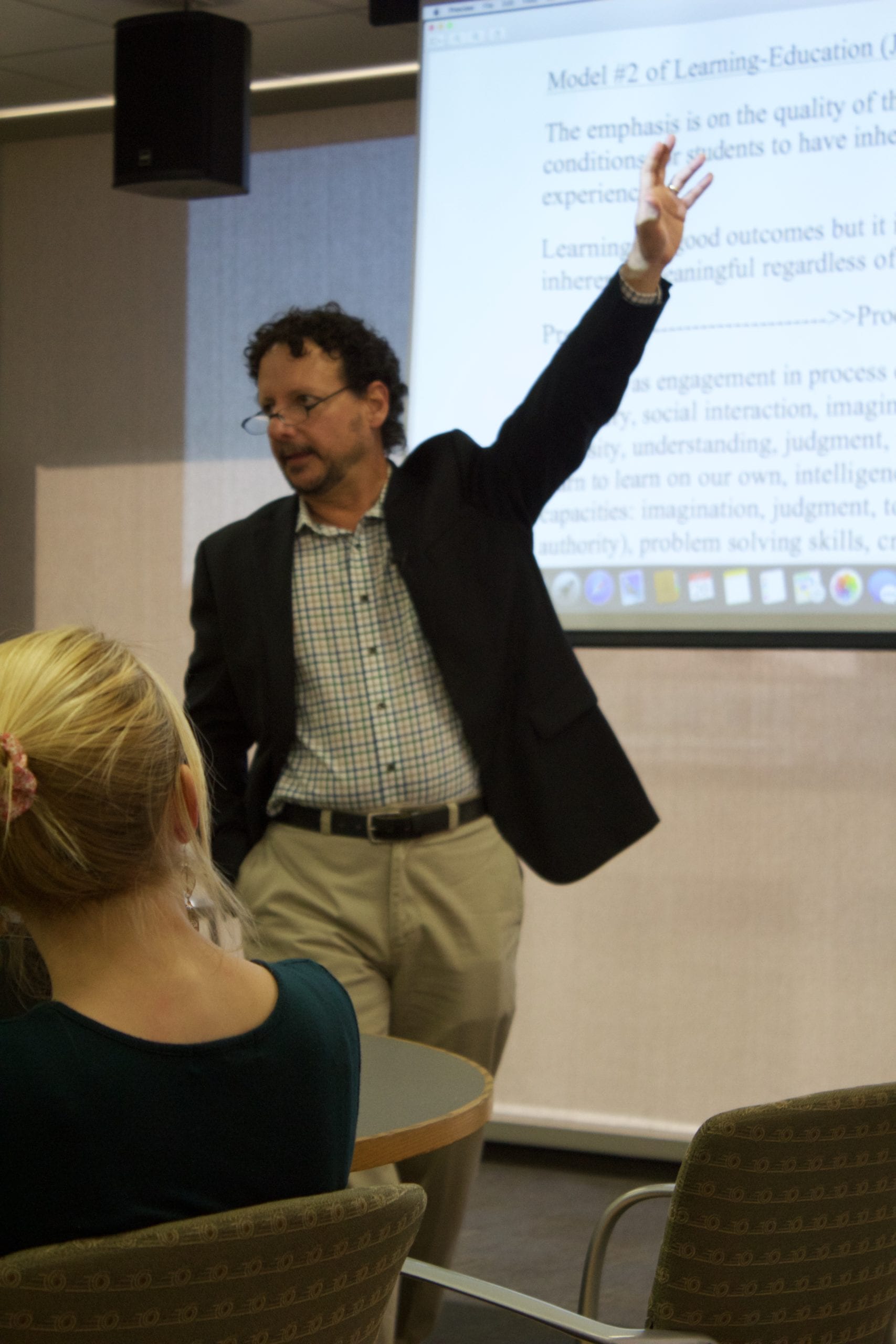
By Sarah Ballard
AUSTIN, Texas – In a lecture on Oct. 25, Gregory F. Pappas, a distinguished fellow for the Latino Research Initiative at The University of Texas at Austin and professor of philosophy at Texas A&M, discussed how new media technologies inhibit deeper learning and threaten the health of democracy.
Pappas is well known for his work in pragmatism, which understands philosophical thought as a means of solving problems. He is the author of “Pragmatism in the Americas” and “John Dewey’s Ethics: Democracy as Experience.”
During his lecture, Pappas explained how the internet and social media allow people to avoid critical thinking and social interaction. He said that the instant gratification new media provides interferes with learning at a deeper level.
“With such a dependence on computers, students technically do not even need to go to class, and technically there isn’t a need for universities at all,” said Pappas. “However, this type of learning is lacking quality. It is not a meaningful learning experience as the students are missing out on the process of learning.”
Pappas went on to discuss how democracy is affected by this, explaining that most people think of democracy as “thin,” which refers to the simple act of voting in elections. However, he explained how democracy needs to be more in order to become “thick” democracy.
“Thick democracy is so important, yet it is hard to achieve with the Internet grabbing our attention constantly,” said Pappas. “With thick democracy, you develop citizens who think critically, think on their own and challenge authority.”
Pappas explained that, in contrast to thin democracy, thick democracy involves fraternity, which includes both communication and community. As our society has become incredibly dependent on the web, the Internet has polarized people and taken away the community aspect.
“I thought Dr. Pappas was very enthusiastic about the issues technology has created, specifically with education and democracy,” said Morgan Malouf, a senior public relations major. “He called to the audience to become more aware of the negative impacts [of] our everyday technology.”
Pappas’ research includes Latin American traditions of philosophy. His current project is called “An Inter-American Approach to the Problems of Injustice.” He is vice president of the Society for the Advancement of American Philosophy and the editor-in-chief of the online scholarly journal The Inter-American Journal of Philosophy.
This lecture, which took place in the Jesse H. Jones Building, was a part of the Media Ethics Initiative lectures series. The Media Ethics Initiative supports research that explores topics relating to communication and the media.



